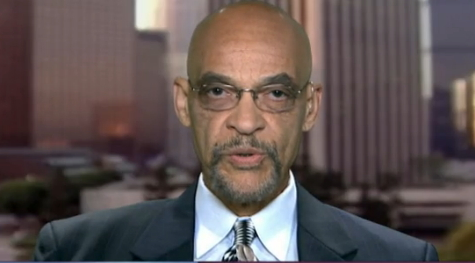Earl Ofari Hutchinson
Anna Lushchinskaya was on a crowded Brooklyn subway train recently. In a pique of rage, she shouted racist epithets at, in order, an Asian woman, two Hispanics, and anyone else she felt like haranguing. Then she topped off her subway racist rage by physically assaulting the Asian woman. It wasn’t the vile, vicious act that caught my eye and told much about why so many whites do exactly what Lushchinskaya did, and worse.
Though this was clearly a racially motivated hate attack, capped by the physical assault in which her victim required hospital treatment, Lushchinskaya was arrested and released on a paltry $1,000 bond. The amount is even more ludicrous given that she isn’t a first-time racial hate offender. She was arrested last June for pepper spraying two Hispanics on another Brooklyn subway train. Low bail, immediate release, two vicious racially motivated hate driven violent assaults, all add up to a virtual license to commit more hate acts. Lushchinskaya did just that with the second subway attack.
She’s not an aberration. The woods are now filled with accounts of openly racist tirades, hectoring, harangues, and violent assaults. Yet in nearly all cases, the perpetrators skip away with the same low bail, little to no jail time, and a few public shakes of the head at their bad behavior.
It’s easy to chalk this up to Trump and his near obliteration of the standard public restraints on expressing or worse acting out racist sentiments. And while there is much to be said for the dirty, vicious, hate mongering quasi legitimacy he’s brought to the times, that’s only part of the answer to why this is happening.
It takes an act so blatant, grotesque and outrageous as a racially motivated murder before anything remotely resembling the full weight of the law, and the full horror of public opinion comes down hard on the violent perpetrator. Even then, there’s still the absolute refusal of law enforcement, most public officials, and much of the general public to connect the dots and see any larger pattern to the acts. There’s still no willingness to unhesitatingly brand the violent racist perps as racial terrorists, and their acts, racial terrorism.
That’s not all. The woman Lushchinskaya attacked initially expressed her desire to remain anonymous. That’s another problem. In far too many cases, the victims do not come forth. In fact, the only reason she was apprehended, and she’ll be on some legal hotseat is because the tape of her tirade and assault went viral. Millions as is the case with such tapes saw it. So, that made evasion impossible. But when there’s no tape, what?
Then everyone goes on their merry way. We see the same pattern with whites who falsely finger an innocent unsuspecting black as a lawbreaker. There is no consequence for them picking up the phone dialing 911 and screaming that the innocent, unsuspecting black presents some dire danger to the accuser. It’s that way because in almost all cases the black victimized by the racist call gives the caller a pass. This pass amounts to a virtual license to get away with it and keep getting away with it.
Civil rights leaders have pounded every presidential administration from Reagan’s on to radically bump up the number of hate crime prosecutions. Yet unless it’s an extreme case of violence, that hasn’t happened. In fact, it’s been just the opposite. Hate crime referrals for possible prosecutions have not appreciably risen under any of the Justice Department that past two decades. The White House foot-dragging on hate crimes has nothing to do with racial double standards and everything to do with politics and practicality.
Federal prosecutors have rarely
placed much stock in bringing criminal civil rights cases. They see them as
no-win cases with little political gain, and the risk of making enemies of
local police, DAs, and state officials. The rare time that the feds cracked
down on civil rights violence was during the 1960s civil rights battles. The
wave of violence then stirred national and international revulsion and forced
then President Lyndon Johnson to order more civil rights prosecutions.
Though federal prosecutors in
recent times have had more than enough legal ground to bring cases in the old
race murders from the 1960s, the prosecutions have been almost exclusively in
state courts. The only exceptions to the hard-nosed rule that prosecutors stay
out of state cases occurs when a hate crime triggers a major riot, generates
mass protests or attracts major press attention.
The days when a Lushchinskaya can launch a race hate verbal and physical tirade and attack on someone or a fraudulent white accuser can effortlessly call the police on a black kid playing ball or a black getting into his own car and then get away with it with a crocodile tear “I’m sorry” wail and a hand slap legal action must end with swift, and tough prosecution and equally swift and tough public condemnation. If not then, Lushchinskaya, and her ilk, will strike again—and get away with it again.
Earl Ofari Hutchinson is an author and political analyst. He is the author of The Russia Probe (Middle Passage Press) He is a weekly co-host of the Al Sharpton Show on Radio One. He is the host of the weekly Hutchinson Report on KPFK 90.7 FM Los Angeles and the Pacifica Network.

